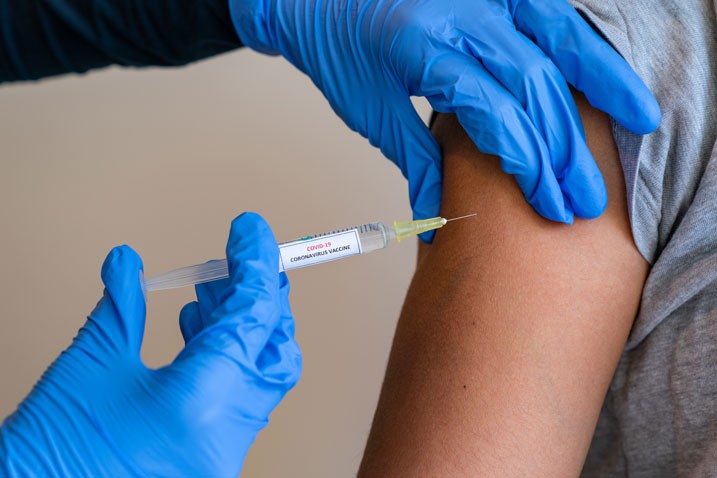Early findings from a Scottish study indicate that, in fully vaccinated individuals, COVID-19 vaccines are protective against the Delta variant.
With the emergence of COVID-19 variants, there is a race to ensure that the whole adult population is vaccinated to reduce the risk of severe illness and hospitalisation. But what is the real-world effectiveness against the predominant COVID-19 variants?
This was a question posed in a preliminary analysis of data from EAVE II, a Scotland-wide surveillance programme which contains data on 5.4 million people (around 99% of the Scottish population), by researchers from Public Health Scotland.
In a letter to the Lancet, the researchers used this database to profile COVID-19 patients and explore the risk of hospitalisation for the virus and to estimate the effectiveness of vaccines at preventing hospital admissions.
They focused on two COVID-19 variants of concern (VOC); the alpha VOC (S gene negative) and the Delta VOC (S gene positive). The analysis was based on all individuals who had a PCR test and compared the proportion of cases which were positive among individuals who had been vaccinated with those who were unvaccinated.
The team defined a COVID-19 hospital admission as being within 14 days of testing positive for virus or individuals who tested positive within 2 days of hospitalisation. The period of analysis was 1 April to 6 June 2021.
Findings
Prior to the period of analysis, 44.7% of the population in Scotland had received at least one dose of a COVID-19 vaccine and 7.6% had been fully vaccinated. By the end of the study period (6 June), the proportion of adults who had received at least one vaccine dose rose to 59.4% and 39.4% had been fully vaccinated.
There were 19,543 confirmed positive COVID-19 infections during the period of study, of whom 377 were admitted to hospital. In addition, 7723 (39.5%) of infections and 124 (35.5%) of hospital admissions were for the Delta VOC and 70% of infections occurred in those without any vaccination.
Using regression analysis, the researchers calculated that delta VOC cases were associated with an increased risk of hospitalisation (hazard ratio, HR = 1.85, 95% CI 1.39 – 2.47) compared with the Alpha VOC. Moreover, the risk of hospitalisation increased with the number of COVID-19 relevant co-morbidities.
Among those infected with the alpha VOC, the risk of hospitalisation was significantly reduced (HR = 0.28) for vaccinated compared to unvaccinated individuals. Similarly, the risk was reduced among those infected with the delta VOC (HR = 0.38).
In terms of vaccine effectiveness in the whole cohort, 14 days after being fully vaccinated with the BNT162b vaccine, there was a good level of protection against the alpha VOC although this was reduced for the delta VOC (92% vs 79%, Alpha VOC vs Delta VOC). In contrast, protection with the ChAdOx1 was lower (73% vs 60%, alpha VOC vs delta VOC).
In summarising their findings, the authors noted that the risk of hospitalisation was nearly double with the Delta VOC compared with the Alpha VOC. Moreover, while the results suggested that the BNT162b vaccine appeared to be more effective against the Delta VOC, the small number of cases meant that these results should be interpreted with caution.
Citation
Shiekh A et al. SARS-CoV-2 Delta VOC in Scotland: Demographics, Risk of Hospital Admission, and Vaccine Effectiveness. Lancet 2021.










